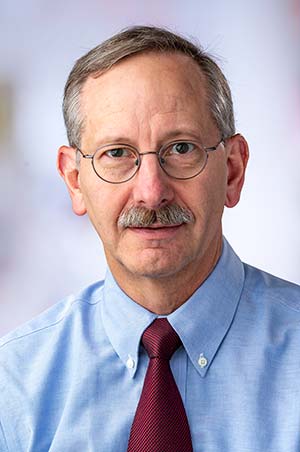David Fredricks, MD
Professor
Vaccine and Infectious Disease Division, Fred Hutch
Professor
Clinical Research Division, Fred Hutch
Member
Translational Data Science Integrated Research Center (TDS IRC), Fred Hutch
Dr. David Fredricks studies the human microbiome — which includes the trillions of tiny organisms that live in and on us — to determine how changes in these microbial communities affect our health. His research has focused on organisms associated with bacterial vaginosis, a common but little-understood condition that increases the risk of preterm birth, pelvic inflammatory disease, HIV and other sexually transmitted diseases. Dr. Fredricks’ team also studies the impact of microbial communities on the outcomes of patients who receive blood stem cell transplants. His research shows that the makeup of gut bacterial populations can vary significantly among patients after antibiotic treatment, and analysis of these patterns might help predict the risk of graft-vs.-host disease, a potentially deadly transplant complication. He leads the Microbiome Research Initiative, a cross-disciplinary effort at Fred Hutch to deepen understanding of the effects of microbial communities on human health.
Other Appointments & Affiliations
Professor, Medicine, University of WashingtonProfessor, Medicine
University of Washington
Adjunct Professor, Microbiology
University of Washington
Graduate Faculty
Microbiology, University of Washington
Attending Physician
Infectious Disease Consulting Service, Fred Hutchinson Cancer Center
Education
Case Western Reserve University, MD, 1990
Stanford University, 1984, MS (Biology)
Stanford University, 1983, BS (Biology)
American Board of Internal Medicine (Infectious Diseases), Washington State Medical License
Research Interests
Determining how changes in microbial communities impact human health
Identifying, characterizing, and culturing microbes found in the human genital tract
Associating the reproductive tract microbiome with human disease
Developing molecular diagnostic tests to detect and identify pathogens in immunocompromised hosts such as cancer patients
Studying antifungal and antibacterial therapies for cancer patients
Understanding changes in the microbiome in patients undergoing cancer therapy
Current Projects
Ecology of human microbial communities
Nucleic acid sequence-based methods for discovering novel pathogens
Developing diagnostic tests based on microbial nucleic acid sequences to detect human pathogens
